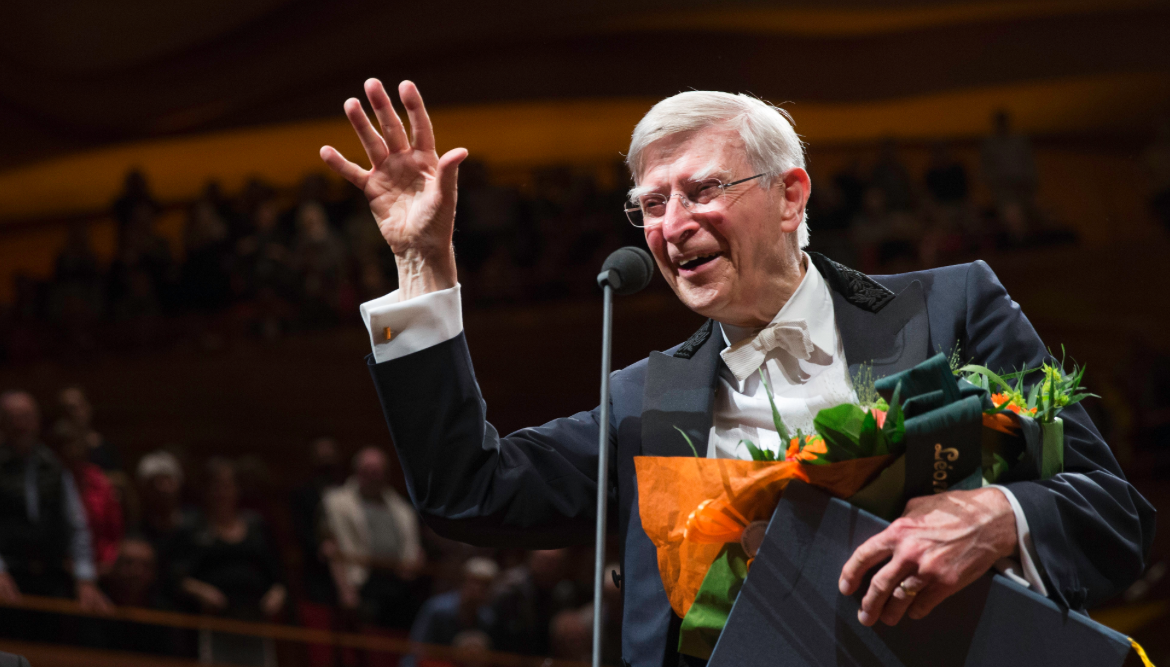
At age 97, Herbert Blomstedt took the podium to lead the Philharmonia Orchestra at London’s Royal Festival Hall. He is among a remarkable group of senior conductors who continue their artistic work well into old age.
For those who associate old age with resting at home and watching trivial TV shows, this may come as a surprise. At 97, even the idea of lifting a baton seems difficult—let alone conducting one of the world’s leading orchestras in Mozart’s Violin Concerto No. 4 and, after a short intermission, Mahler’s monumental Ninth Symphony—a work that typically lasts 90 minutes. Just standing in formal attire and a white tie for that long can seem daunting to many.
And yet, conductors often possess a different kind of stamina. In the last century, when the global average life expectancy was just 46 years in 1950 (rising to 66 by 1999), many legendary conductors remained active well into their 80s and 90s. Pablo Casals died at 96, Nadia Boulanger at 92, and Arturo Toscanini at 89. Leopold Stokowski, known for conducting Disney’s Fantasia, was still giving public performances at 91, recording at 93, and passed away at 95.
Today, with the World Health Organization reporting a global life expectancy of 71 years, many classical conductors continue to perform in the world’s leading concert halls well past the age of 70. This list includes names like Christoph von Dohnányi (95), Richard Bonynge (94), Roger Norrington (90), Zubin Mehta (88), Charles Dutoit (88), Neeme Järvi (87), Marek Janowski (85), Riccardo Muti (83), Lothar Zagrosek (82), and Daniel Barenboim (82).
Although Barenboim stepped down last year from his position as general music director of the Berlin State Opera due to health concerns, he stated, “Of course, I will remain connected to music for as long as I live and will be ready to conduct.”
Research shows that conductors tend to live longer. In 1956, researchers at MetLife identified 437 conductors and tracked them over 20 years. The results showed that conductors lived 38% longer than the general population. One theory, proposed by Dr. Dale L. Anderson, suggests that conducting is a form of cardiovascular exercise. In his book The Secrets of Health and Longevity in Conductors, Anderson describes conducting as a physical regimen that improves heart and lung function, strengthens posture, enhances flexibility and balance, and can even contribute to weight loss.
According to him, coordinating arm movements with music also stimulates the brain and increases neural connectivity. Recent studies support this idea, showing that playing musical instruments and even singing can improve memory and brain health. Anne Corbett, a dementia research professor, believes that musical activities enhance mental flexibility and protect the brain from aging.
For Blomstedt, music is too captivating to walk away from. “Retirement is not about age,” he says, “it’s about flexibility. I love music so much that I simply can’t give it up. There’s always something new to learn, and that hope for the future is what keeps me going.”
On November 21, Herbert Blomstedt conducted the Philharmonia Orchestra at London’s Royal Festival Hall.